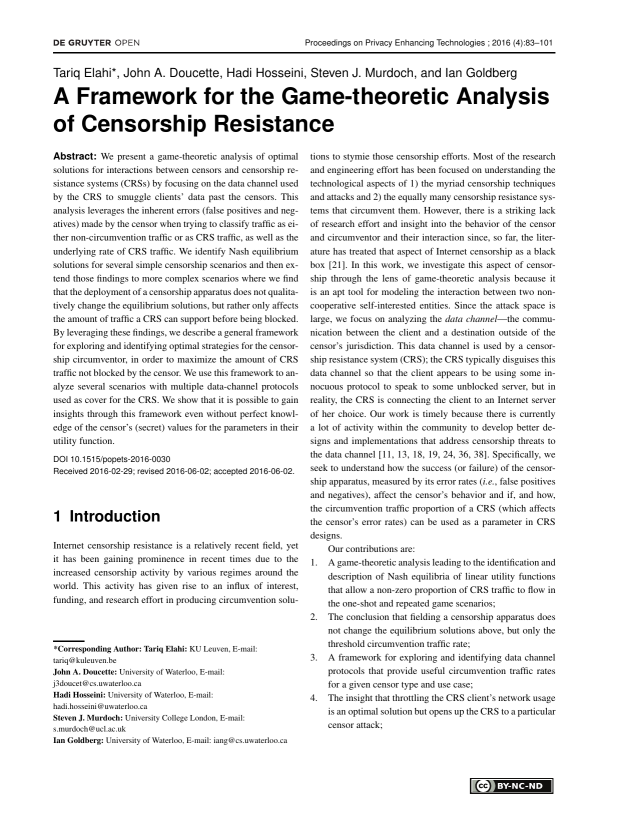A Framework for the Game-theoretic Analysis of Censorship Resistance
Authors: Tariq Elahi (KU Leuven), John A. Doucette (University of Waterloo), Hadi Hosseini (University of Waterloo), Steven J. Murdoch (University College London), Ian Goldberg (University of Waterloo)
Volume: 2016
Issue: 4
Pages: 83–101
DOI: https://doi.org/10.1515/popets-2016-0030
Abstract: We present a game-theoretic analysis of optimal solutions for interactions between censors and censorship resistance systems (CRSs) by focusing on the data channel used by the CRS to smuggle clients’ data past the censors. This analysis leverages the inherent errors (false positives and negatives) made by the censor when trying to classify traffic as either non-circumvention traffic or as CRS traffic, as well as the underlying rate of CRS traffic. We identify Nash equilibrium solutions for several simple censorship scenarios and then extend those findings to more complex scenarios where we find that the deployment of a censorship apparatus does not qualitatively change the equilibrium solutions, but rather only affects the amount of traffic a CRS can support before being blocked. By leveraging these findings, we describe a general framework for exploring and identifying optimal strategies for the censorship circumventor, in order to maximize the amount of CRS traffic not blocked by the censor. We use this framework to analyze several scenarios with multiple data-channel protocols used as cover for the CRS. We show that it is possible to gain insights through this framework even without perfect knowledge of the censor’s (secret) values for the parameters in their utility function.
Copyright in PoPETs articles are held by their authors. This article is published under a Creative Commons Attribution-NonCommercial-NoDerivs 3.0 license.

